The Steering Committee is the main governing body overseeing and managing the priorities and policies of the BVA, such as, establishing new Research Action Clusters, admission of new member institutions and setting dues. Steering Committee members are charged with providing consultation and oversight to the Director, the Associate Director, or the Hub on BVA matters and will make recommendations regarding the goals of the BVA.
Only member campuses may vote on Steering Committee issues. While each campus is encouraged to send two representatives to Steering Committee meetings, each campus will have one vote. A campus representative to the Steering Committee serves with the approval of his or her campus as an institutional representative, and without compensation from the BVA.
The Director, with the concurrence of the Hub, may invite people who bring appropriate expertise and provide connection to other communities with similar goals to serve as ad hoc members of the Steering Committee. These ad hoc members have a voice but no vote in Steering Committee deliberations.
Members of the Hub also attend steering committee meetings and have a voice but not vote.
Steering Committee Meetings
Steering Committee Representatives
Each campus decides who will represent them at Steering Committee meetings. This allows continuity, but also the opportunity to engage in Steering Committee deliberations. Over 90 representatives from BVA campuses have contributed to these deliberations since December 2012, along with 12 Hub and six ad hoc members of the Steering Committee.
Committees
Ad hoc committees, standing committees, or working groups are established to conduct detailed work on BVA priorities. Current standing committees include:
- Communications and Outreach Committee – to develop and implement a communication and outreach strategy
- Governance Committee – to develop governance policies
- Funding and Niche Committee – to identify funding channels to sustain activities and research
Member Campus Representatives
Noah Finkelstein
University of Colorado Boulder
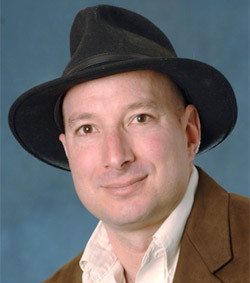
Noah Finkelstein is a Professor of Physics at the University of Colorado Boulder and conducts research is in physics education. He serves as a director of the Physics Education Research (PER) group at Colorado. Finkelstein is also a Director of the national-scale Center for STEM Learning at CU-Boulder, which has become one of eight national demonstration sites for the Association of American Universities’ STEM Education Initiative.
Finkelstein’s research focuses on studying the conditions that support students’ interest and ability in physics – developing models of context. These research projects range from the specifics of student learning particular concepts, to the departmental and institutional scales of sustainable educational transformation. This research has resulted in over 100 publications.
He is increasingly involved in education policy serving on many national boards including chairing the American Physical Society’s Committee on Education, and is a Technical Advisor to the Association of American University’s STEM Education Initiative. He serves on the Board of Trustees for the Higher Learning Commission, which accredits more than 1,000 institutions of higher education in the U.S.
He is a Fellow of the American Physical Society, and a Presidential Teaching Scholar for the University of Colorado system.
Brian Frank
Queen’s University
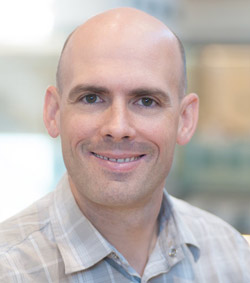
Brian Frank is an associate professor in the Department of Electrical and Computer Engineering, the Dupont Canada Chair in Engineering Education Research and Development, and the Director of Program Development in the Faculty of Engineering and Applied Science where he works on engineering curriculum development, program assessment, and developing educational technology. His teaching interest is project based courses, and he currently coordinates APSC-100, a required course that includes a semester-long team client-based design project, primarily service learning projects. He was also co-chair of the Physical Sciences panel of the HEQCO Sector-based Tuning project, developing proposals for learning outcomes in physical sciences, social sciences, and life and health sciences in Ontario. He is a co-founder of the Canadian Engineering Education Association, and is currently coordinating the Engineering Graduate Attribute Development Project, working to develop national guidelines and resources for outcomes assessment in engineering education. Currently he is co-principal investigator of Queen’s University’s project on the HEQCO Learning Outcomes Consortium.
Dea Follmer
University of Kansas
Director
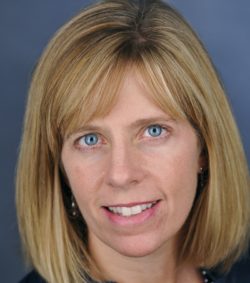
Andrea (“Dea”) Follmer, is Professor of Psychology, Director of the Center for Teaching Excellence (CTE) and Gautt Teaching Scholar at the University of Kansas (KU). Her research in psychology focuses on memory and cognitive development. Her work in higher education envisions and explores strategies for advancing transformed teaching and learning, informed by cognitive and developmental science. Supported by grants from the Spencer, Teagle, and National Science Foundations, the Association of American Universities, and the Howard Hughes Medical Institute, much of her work has examined strategies for improving learning and student development in diverse populations of students, for assessing learning, and for using the evidence to improve education. She has led numerous university-wide educational improvement initiatives at KU.
Dea serves as Director of the BVA and is principle investigator of the BVA’s TRESTLE project, promoting STEM course transformation and improved learning through department-embedded expertise and community building. She also leads the KU effort on TEval, another NSF-funded collaboration that aims to transform the evaluation of teaching in higher education through the use of a multi-dimensional, multi-source framework.
Mary Huber
Carnegie Foundation for the Advancement of Teaching
Senior Scholar
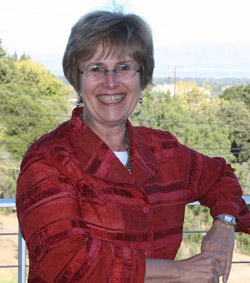
Mary Taylor Huber is a senior scholar with the Bay View Alliance, and a contributing editor at Change: The Magazine of Higher Learning, where she writes the Books Worth Reading column. A senior scholar emerita at the Carnegie Foundation for the Advancement of Teaching, she directed projects on cultures of teaching and on integrative learning, and served on the senior leadership team of the Carnegie Academy for the Scholarship of Teaching and Learning. Coauthor of the Carnegie report Scholarship Assessed: Evaluation of the Professoriate (with Charles Glassick and Gene Maeroff), related books include Disciplinary Styles in the Scholarship of Teaching and Learning (edited with Sherwyn Morreale); Balancing Acts: The Scholarship of Teaching and Learning in Academic Careers; The Advancement of Learning: Building the Teaching Commons (with Pat Hutchings), and The Scholarship of Teaching and Learning Reconsidered: Institutional Integration and Impact (with Pat Hutchings and Anthony Ciccone). She has also written books and essays on colonial cultures in Papua New Guinea, and holds a doctorate in anthropology from the University of Pittsburgh. Huber serves on the BVA Hub, the advisory board for the TEval project and, with Pat Hutchings, as an evaluator for TRESTLE, conducting in-depth, longitudinal case studies of four participating departments.
Pat Hutchings
National Institute for Learning Outcomes Assessment
Senior Scholar
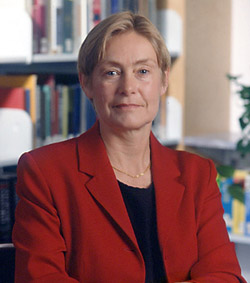
Pat Hutchings is a senior scholar with the National Institute for Learning Outcomes Assessment (NILOA). Previously (until 2009) she was a senior scholar and vice president of the Carnegie Foundation for the Advancement of Teaching. She has written, spoken, and consulted widely on student outcomes assessment, integrative learning, the investigation and documentation of teaching and learning, the peer review of teaching, and the scholarship of teaching and learning. Publications include Using Evidence of Student Learning to Improve Higher Education (with the NILOA team, 2015); The Scholarship of Teaching and Learning Reconsidered: Institutional Integration and Impact (with co-authors Mary Taylor Huber and Anthony Ciccone, 2011); and The Advancement of Learning: Building the Teaching Commons (with Mary Taylor Huber, 2005). She holds a doctorate in English from the University of Iowa and began her career as a faculty member and chair of the English department at Alverno College. In addition to her role with the BVA Hub, she serves, with Mary Huber, as an evaluator for TRESTLE, conducting in-depth, longitudinal case studies of four participating departments.
Patti McDougall
University of Saskatchewan
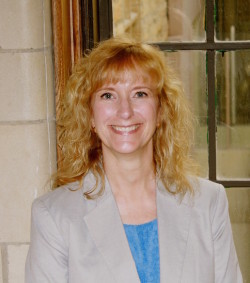
Patti McDougall is the Vice-Provost, Teaching and Learning at the University of Saskatchewan. She holds a Ph.D. in Human, Learning, Development and Instruction at the University of British Columbia. Patti joined the University of Saskatchewan in January of 2013. She comes to her position having previously served as the Assistant, Associate and Interim Dean at St. Thomas More College (federated with the University of Saskatchewan). As a developmental and educational psychologist, Patti’s research follows multiple streams including social relationships in childhood and adolescence (e.g., bullying, friendship), youth-adult partnerships, and the experience of educational transitions (e.g., into high school, into university).
George Rehrey
Indiana University Bloomington
George Rehrey directs the Scholarship of Teaching and Learning Program at Indiana University’s Bloomington campus (IUB), leading efforts to fully integrate and institutionalize a program with a 16-year history of success. He is also a Principal Instructional Consultant with IUB’s Center for Innovative Teaching and Learning, where he supports instructors of all ranks as they transform their courses, conduct classroom research, collect evidence of student learning, form communities of inquiry, and disseminate their work locally, nationally, and internationally. This past year George played an instrumental role in the design and implementation of a new program review process now required of all 44 departments within the College of Arts and Sciences. George is a co-founding member of the Institute for Curriculum and Campus Internationalization as well as the Internationalization Collaborative Across Bloomington (ICAB), a Title VI funded project that brings faculty together from IUB and Ivy Tech Community Colleges. ICAB participants work collectively on the integration of global student learning outcomes within curricula. George’s current SOTL research includes the learning of geological time, the problems of academic integrity as a cultural phenomenon in computer science courses, the effect of backward course design upon student engagement and, the influence that social and economic reward systems may have upon academic development programs.
James Staros
University of Massachusetts Amherst
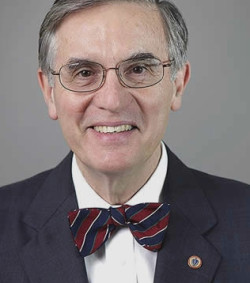
James V. Staros received his undergraduate education at Dartmouth, where he became hooked on research and co-authored his first published scientific paper with his undergraduate research advisor. He was a NSF Graduate Fellow at Yale, where he earned a Ph.D. in Molecular Biophysics & Biochemistry and a Helen Hay Whitney Postdoctoral Fellow in Chemistry at Harvard.
Staros began his faculty career at Vanderbilt in 1978, serving as a department chair 1988-2002. In 2002, Dr. Staros was named Dean of the College of Arts & Sciences at Stony Brook (SUNY). In 2009, he became Senior Vice Chancellor for Academic Affairs & Provost of the University of Massachusetts Amherst, with a faculty appointment as Professor in the Department of Biochemistry & Molecular Biology, a position that he assumed full time in September 2014 when he stepped out of his administrative post.
In addition to leading a vigorous research program, Staros has been very active in bringing innovations into the science classroom and teaching laboratory. In 1991, in a successful proposal to the HHMI Undergraduate Biological Sciences Education Program, he designed a networked wet teaching laboratory as part of a total overhaul of introductory biology. In 1995, he posted his first hypertext syllabus for a course he taught in a computer classroom designed and built with support from another HHMI grant. More recently, he has been a strong proponent of Team-Based Learning (TBL), with the result that UMass Amherst has constructed seven IT-enhanced TBL classrooms on campus and has provided support for faculty converting courses to TBL format through its Center for Teaching & Faculty Development.
Lorne Whitehead
University of British Columbia
Past Director
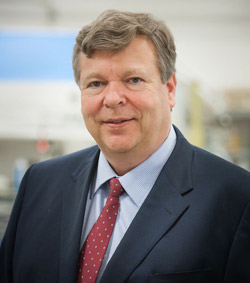
Lorne A. Whitehead is UBC’s Special Advisor on Entrepreneurship, Innovation and Research and a professor in the Department of Physics and Astronomy. Dr. Whitehead has held a number of administrative positions including Associate Dean, Dean pro tem, VP Academic & Provost and Leader of Education Innovation. In these roles a considerable portion of his effort has focused on applying the methodology of innovation to the improvement of teaching and learning. Dr. Whitehead received a Ph.D. in Applied Optics from UBC and has considerable experience in technological, business and administrative innovation. From 1983 to 1993 he served as CEO of TIR Systems, a UBC spin-off company that grew to 200 employees before being purchased by the Philips corporation. Since joining UBC in 1994, his scientific research has involved novel applications of the optical, electrical and mechanical properties of micro-structured surfaces, a field in which he holds more than 100 patents. His technology has produced seven university spin-off companies and numerous licensing agreements, and can be found in many common computer screens and televisions.
Ad-hoc Members
Dan Bernstein
University of Kansas
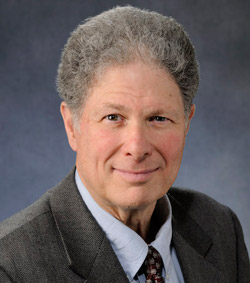
Dan Bernstein is a Professor of Psychology at the University of Kansas. He was at the University of Nebraska – Lincoln from 1973 until 2002, when he became Director of the Center for Teaching Excellence at KU. His recent writing has focused on electronic course portfolios centered on student learning, and he works with colleagues from many fields of study to showcase the quality of their student work and the practices that have helped that work emerge. Recent grants from the Teagle and Spencer Foundations have enhanced writing and library skills through team-designed assignments and the use of assessment data in course and curriculum change. Currently he explores and evaluates various uses of technology to promote student understanding, and his ongoing courses are a laboratory for evaluating the impact of out of class web-based activities on deep understanding of conceptual material. A new grant from the Teagle Foundation is developing use of active and student centered learning in humanities, both in and out of class time. He was a Charter Member of the University of Nebraska Academy of Distinguished Teachers, and he was a Carnegie Scholar in 1998. Recently he received the J. Michael Young Academic Advising Award at KU and the Fred S. Keller Behavioral Education Award from Div. 25 of the American Psychological Association. He has completed his service at the KU CTE and continues as a psychology professor.
Howard Gobstein
Association of Public & Land-Grant Universities (APLU)
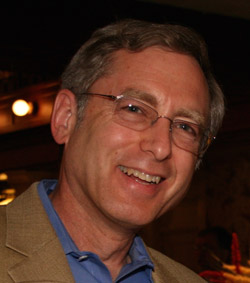
Howard Gobstein is the Executive Vice President for Research, Innovation, and STEM Education at A۰P۰L۰U. He co-directs both the Science and Mathematics Teacher Imperative (SMTI) and the Mathematics Teacher Education Partnership (MTEP). He initiated SMTI and is also responsible for university policy efforts pertaining to research, education and economic development. His past positions include associate vice president for governmental affairs and director of federal relations at Michigan State University, senior policy analyst in the Office of Science and Technology in the Executive Office of the President, and vice president and senior program officer at the Association of American Universities (AAU). Gobstein spent the first 11 years of his career designing and leading evaluations of government science programs and policies with the U.S. Government Accountability Office. He holds a master’s degree in science, technology and public policy from George Washington University and a bachelor’s in interdisciplinary engineering from Purdue University. He is a Fellow of the American Association for the Advancement of Science (AAAS). He was named the distinguished alumni of 2010 by the Purdue School of Engineering Education.
Emily Miller
Association of American Universities (AAU)
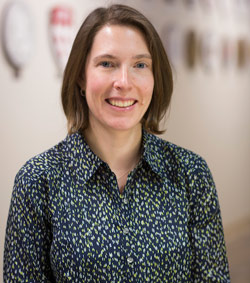
Emily Miller joined the Association of American Universities (AAU) in 2012 as the project manager for AAU’s Undergraduate STEM Education Initiative. Previously she worked with the Association for Community College Trustees (ACCT) as a research and curriculum specialist. During her graduate studies, Miller worked on grant projects focused on international partnerships for higher education development as well as a series of programs aimed at addressing the opportunities, changes, and challenges occurring in faculty careers and the academic workplace. In addition, she collaborated with the Association of Governing Boards of Universities and Colleges (AGB) with their board education and consulting services as well as on research examining faculty engagement in institutional governance.
Miller was an assistant director of career services at Tufts University and worked in alumni relations at Harvard Business School. Prior to working in higher education, she worked in government contracts litigation with Wiley, Rein & Fielding, LLP.
Miller earned her PhD in Higher, Adult, and Lifelong Education from Michigan State University; MA in Education Policy and Management from Harvard Graduate School of Education; and BA, cum laude and with honors, in Political Science from Gettysburg College.
Miller has published on the topics of post-secondary institutional leadership, specifically as it relates to governance and administration; organizational change in universities and colleges; and higher education policy. She is also a professional lecturer of higher education at The George Washington University and is an active member of the Association for the Study of Higher Education.
Kacy Redd
Association of Public and Land-Grant Universities (APLU)
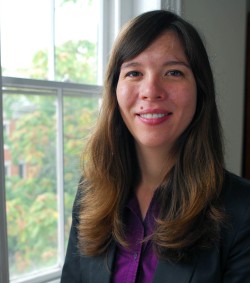
Kacy Redd is the Associate Vice President of Research & STEM Education at APLU. She is the PI on a $1.5 million National Science Foundation (NSF) grant to build a Network of STEM Education Centers (#1524832), and as co-director of NSEC, she works with more than 200 STEM Education Centers/Institutes/Programs at 163 institutions. These centers serve as the hub for improving STEM education on their campuses. She is also the Co-PI on the NSF-funded APLU INCLUDES project (#1649214) aimed at diversifying the STEM professoriate. Through a collaborative, evidence-based approach, the two-year project seeks to provide APLU’s membership with tools to broaden student participation in STEM programs; foster career pathways toward the professoriate; and provide tools for universities to effectively recruit, hire, and retain faculty from underrepresented groups.
She also serves as the staff lead for APLU’s work in improving the culture of research safety at institutions, which resulted in the Guide to Implementing a Safety Culture, an associated website with tools for institutions, and an awards program dedicated to improving lab safety. She leads APLU’s work on public access of data from federally funded research and wrote a joint APLU and Association of American Universities (AAU) report detailing actions universities and federal agencies can take to ensure public access to federally sponsored research data.
Before joining APLU, she served as a science and technology policy fellow at the National Academy of Sciences on the Board of Higher Education and Workforce. Redd received her Ph.D. in neuroscience from Columbia University, where she was funded by a HHMI Predoctoral Fellowship, and her B.S. from the University of Southern Mississippi.
Linda Slakey
Senior Scholar
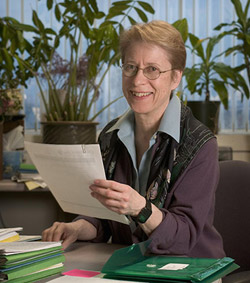
Dr. Linda Slakey is a graduate of Siena Heights College (B.S. in Chemistry), and the University of Michigan (Ph.D. in Biochemistry.) She was appointed to the faculty of the Department of Biochemistry at the University of Massachusetts Amherst in 1973. Her scientific work focused on lipid metabolism and vascular biology, and was funded by the National Institutes of Health, the American Heart Association, and the National Science Foundation. She was Head of the Department of Biochemistry from 1986 until 1991, and Dean of the College of Natural Sciences and Mathematics (NSM) from 1993 until 2000. In September of 2000, she was appointed Dean of Commonwealth College, the honors college of the University of Massachusetts Amherst. As Dean of NSM and of Commonwealth College she was active in supporting teaching and learning initiatives throughout the University, with particular attention to engaging undergraduate students in research, to faculty development activities that promote the transition from lecturing to more engaged pedagogies, and to the support of research on STEM learning. She served at the National Science Foundation from 2006 until 2011, as Director of the Division of Undergraduate Education. At present she has a consulting practice focused on bringing about a shift in the culture of undergraduate teaching from one in which lecture as the dominant mode is an acceptable norm toward one characterized by personal and institutional expectations of more student-centered teaching practices.
Toby Smith
Association of American Universities (AAU)
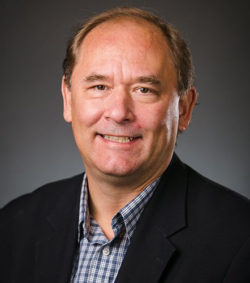
Toby Smith has served at AAU since January 2003. As Vice President for Policy, he oversees AAU’s policy projects, initiatives and activities including the AAU Undergraduate STEM education and PhD education initiatives. He is responsible for matters relating to science and innovation policy and broader impacts of science.
He shares responsibility for matters concerning research costs and compliance issues including facilities and administrative costs, export controls, scientific openness and security, technology transfer and regulatory reform. He also staffs the Senior Research Officers constituent group.
Prior to joining AAU in January 2003, Toby worked as a federal relations representative in the Washington D.C. Offices of the University of Michigan (1999-2002) and the Massachusetts Institute of Technology (1992-1999). He began his Washington career on Capitol Hill as a legislative assistant to Congressman Bob Traxler (D-Michigan).
Toby has written and spoken widely on science policy and funding issues. He is the co-author a book on national science policy published in 2008 by the University of Michigan Press titled, Beyond Sputnik – U.S. Science Policy in the 21stCentury. He is a member of the National Academies of Sciences, Engineering and Medicine Roundtable on the Communication and Use of Social and Behavioral Sciences and serves on the Advisory Board to the National Alliance for Broader Impacts (NABI). He is also a fellow of the American Association for the Advancement of Science.
Toby holds a master’s degree in Legislative Affairs from George Washington University, and a Bachelor of General Studies (BGS) degree from the University of Michigan.
